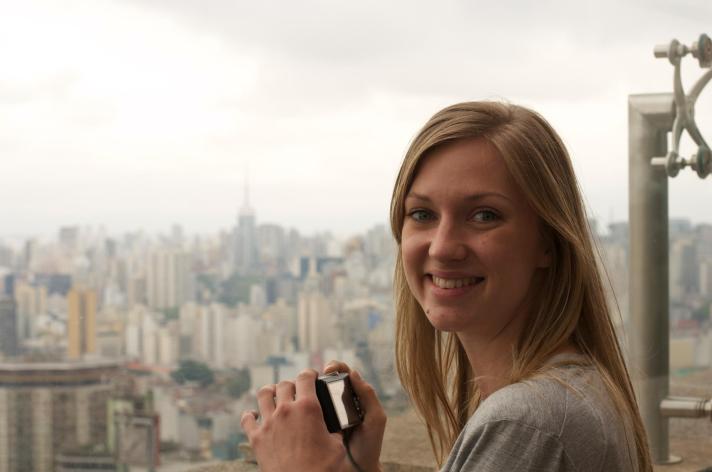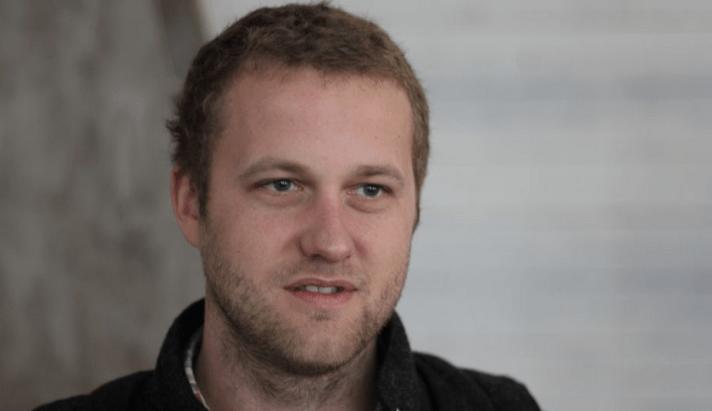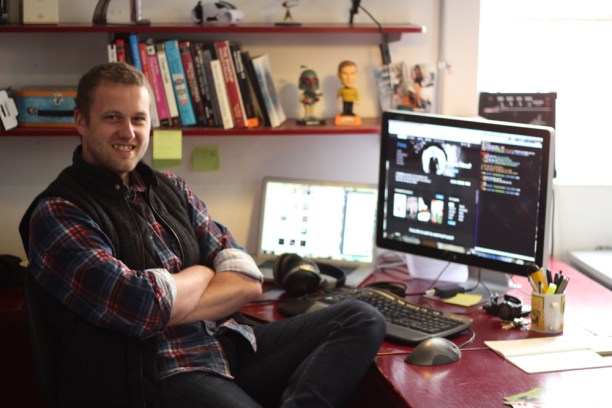This week we interview Gary Swart, the CEO of oDesk – a global job marketplace.
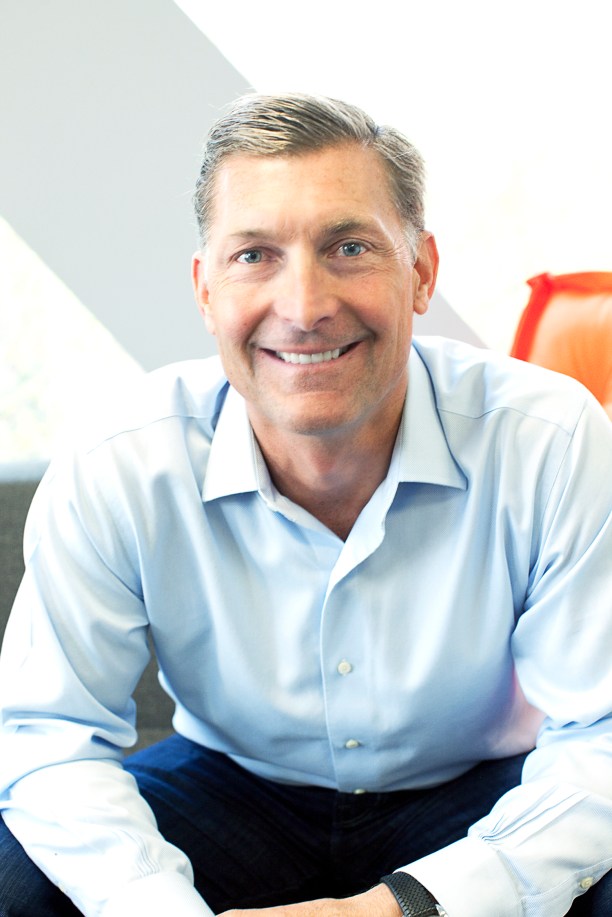
You started at oDesk in 2005 as CEO, what changes have you seen in the company since then?
Well we have definitely grown quite a bit! If you think about the evolution of a startup in terms of three phases—the jungle, the dirt road and the highway—we’ve gone from overtaking the competition in 2009 while in our ‘jungle’ phase, to now approaching the ‘highway’ and being larger than all of our next six competitors combined. A large part of that growth was the decision in 2006 to refine our pricing strategy, a decision which top Silicon Valley venture capitalist Bill Gurley of Benchmark Capital called “aggressive strategic thinking” that launched us to market leadership.
We’ve experienced eight times growth in ‘hours worked’ on the oDesk platform since only 2009, so our company has expanded significantly to keep up with that demand. We are now at approximately 130 full-time employees in our Silicon Valley headquarters, plus another 250 full-time-equivalent freelancers from the oDesk network who come to work for us every day from around the world. And as we fully reach the ‘highway’ and continue to grow, I expect our ranks to continue expanding so we can keep up.
You came in to help the founders, Odysseas Tsatalos and Stratis Karamanlakis, scale and build the company. Are they still involved to date?
Absolutely; Odysseas is currently our Chief Technology Officer and Stratis is our Vice President of Development. They truly embody the oDesk vision, as the company was born out of their desire to work together. In 2003, Odysseas’ Silicon Valley startup was in need of a world-class engineer with a specific skill set. He thought his friend Stratis in Greece would be a great fit, but Odysseas’ team was hesitant to hire someone halfway around the world. To bridge the distance, the two developed technology to manage their work together online. They realized the potential of their technology, and oDesk was born. They continue to not only work together—with Odysseas in California and Stratis still in Athens—but also to help shape the vision for oDesk.
How does oDesk differ from other marketplaces?
oDesk differs from other kinds of marketplaces—such as online shopping or even online dating—primarily because it’s about more than just finding the right product or service (or date); we also care about what happens after the match. So whereas other marketplaces are essentially cut out of the picture after the product is sold or the relationship has sparked, oDesk stays in the picture throughout the lifecycle of the working relationship.
Our value, therefore, lies in creating long-term relationships, and then giving users the tools to make those relationships successful.
This has required building a much more robust platform that supports these continued relationships, from making the match and managing the professional, to submitting the final deliverable and facilitating payment. Trust and transparency have been especially critical to building a vibrant community that fosters these long-term relationships, as the people working together typically never meet in person and often are hundreds or thousands of miles away. To create this trust and transparency, our freelancer profiles offer rich information such as each professional’s work history, ratings and reviews, education and portfolio. We also offer a guarantee to businesses that an hour paid is an hour worked, as well as a guarantee to freelancers that an hour worked is an hour paid.
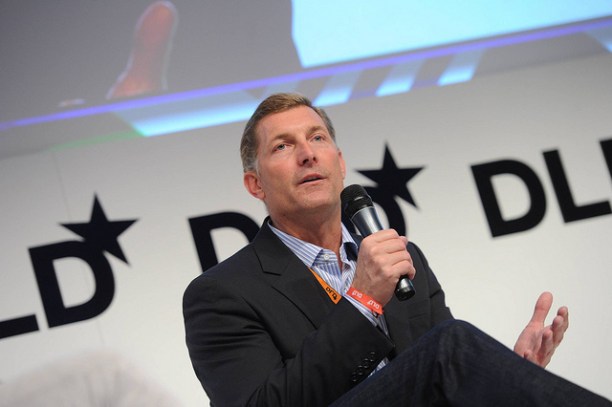
How do you think the workforce is changing and how can businesses keep up?
I think both businesses and workers are realizing that the traditional work model—the 9-to-5 in the same office, staffed with full-time employees who work there for a year or more—is not only outdated, but unnecessary. Thanks to advancements in technology, especially in collaboration and communication technologies, it’s no longer necessary to have everyone in the same office, working the same hours. Businesses are now embracing the fact that they can hire the best people for each role, regardless of where they are located, and that they can build flexible teams of experts that scale up and down in response to demand. Workers, meanwhile, are enjoying the freedom and flexibility to live and work wherever they like, to choose their own schedule, and to pick projects based on what they’re passionate about, not what they’re assigned.
As flexible work models become more and more mainstream, businesses that do not consider them will be left struggling to compete. So I really encourage businesses to have an open mind about what their workforce looks like.
Can people hire specialised talent via oDesk? What about roles that need to be in the know about company happenings (like social media managers)?
Definitely. In fact, specialized talent is often the best use case for oDesk. Online work has done to the job market what ecommerce did for retail—it enabled the long-tail of specialization to thrive. For example, a brick-and-mortar business probably wouldn’t be able to survive selling only pickles, but a homemade pickle business with an online presence can do extremely well because its customer base is global. In the same way, professionals who work online can be much more highly specialized—in a certain niche programming language, for example, or in branding for eBooks—because they have a much wider client base to serve. As oDesk has grown, we’ve seen specialized skills grow extremely quickly; we’ve even seen bioinformatics and theoretical physicists hired recently!
For roles that need to be highly informed on company happenings, we recommend a well thought-out onboarding process that gets the freelancer up to speed on how the company works, who and what they can use as a resource, how their performance will be measured, etc. We find that often freelancers become long-term team members, so it helps to train and include them in a similar way as you would with an in-person hire. Even on-site employees can feel like outsiders when communication isn’t effective, so it’s every manager’s responsibility to keep all their team members informed and involved—regardless of level, location, etc. For example, we have a policy at oDesk that when remote team members join meetings (which happens in almost every meeting), they have priority speaking privileges.

How could a non-technical person go about building a prototype for an idea using oDesk?
I would advise them to hire a project manager.
These professionals specialize in recruiting and managing online freelancers, and there are many who specialize further in serving as a liaison between technical talent and non-technical clients. Thanks in part to use cases like this one, the ‘project management’ category of work has exploded on oDesk—it’s currently our second fastest-growing skill on oDesk, with a two-year compound annual growth rate of 149% in dollars billed.
Do you get many companies developing good relationships with freelancers and then hire them directly?
While it’s definitely very common for clients to develop strong, long-term relationships with freelancers on oDesk, we actually find that both clients and freelancers usually prefer to keep the relationship on oDesk. That’s because we provide tools to manage and pay freelancers easily—which means businesses don’t have to worry about the paperwork or regulations of hiring remote workers, and freelancers don’t have to worry about submitting invoices or justifying their hours.
In fact, we frequently see businesses build entire distributed teams on oDesk, sometimes of more than 100 people. These teams function much more effectively by remaining on oDesk because the site helps them manage and pay these global teams, which would be extremely difficult without oDesk’s management technology or global payment platform. For example, with payment specifically, businesses would have a very challenging time paying workers all over the world in different currencies, with different regulations for international money transfer, etc.—whereas on oDesk, they have one simple credit card payment each week to pay their entire team.
Without visibility, how can companies ensure freelancers are making good use of their time?
That’s exactly why oDesk has seen such rapid growth, because it addresses that pain point. oDesk is all about online visibility—providing the ability to “manage by walking around” and have an ongoing dialogue to collaborate and course-correct as work progresses. The main feature supporting this visibility is the Work Diary, which provides screenshots of work.
You’re officially launching in Australia in 2013 – what activities are on the cards?
We are still in the information-gathering phase, but we are really looking forward to sharing details as soon as possible. One of the things we’ve already learned is that Australians are savvier than most in their use of online workers, so we see enormous potential for Australia. The market is already the second-largest on oDesk for the amount of work being hired for, and when we adjusted on a per-capita basis, we realized Australia is actually the largest market on oDesk. Australian businesses hired $32M of work on oDesk last year, which was twice as large as what the U.S. billed on a per-capita basis.
Have you visited before? What do you love about the place? Have you noticed many differences between the US and there?
I hadn’t visited before and now that I’ve been, I can’t believe it took me so long! What don’t I love? The first thing I did when I got off the plane was walk up and down the hills of Sydney, through all the vibrant neighborhoods.
It was a great way to get a sense of the place, and in many aspects there are a lot of similarities to the San Francisco Bay Area that I call home. I have to say though that the food in Australia might be better (at risk of offending Bay Area foodies), and that the tech scene is certainly equally vibrant. Perhaps my favorite aspect of the culture though was the laughter!
You just announced results of a survey on the future of work, focusing on independent and entrepreneurial professionals. What results did you find most enlightening?
We’ve been thinking a lot about what it means to be “an entrepreneur”. It used to be that an entrepreneur started a company, period. Today, being an entrepreneur is more than that. It’s a mindset that people aspire to, and that many see as critical to career success. Technical innovation (especially the Internet) is making more business resources broadly available, essentially democratizing entrepreneurship. People are using shared or on-demand resources now that they wouldn’t have the purchasing power to access otherwise. We went into this study with the hypothesis that the definiton of what it means to be an entrepreneur has itself changed, but we were shocked to see how resoundingly the professionals we surveyed agreed — 90% classified “being an entrepreneur” as a mindset (versus someone who starts a company).
___
To find out what local professional-geared events are on in your city, subscribe to The Fetch weekly email digests.
About our Curator // Kate Kendall is the founder and CEO of The Fetch, a community where professionals can discover and share what’s happening in their city. Before this, Kate led product, content and digital at magazine companies, handled outreach for new startups and organised too many communities and events to mention. Follow her on Twitter at @katekendall.




